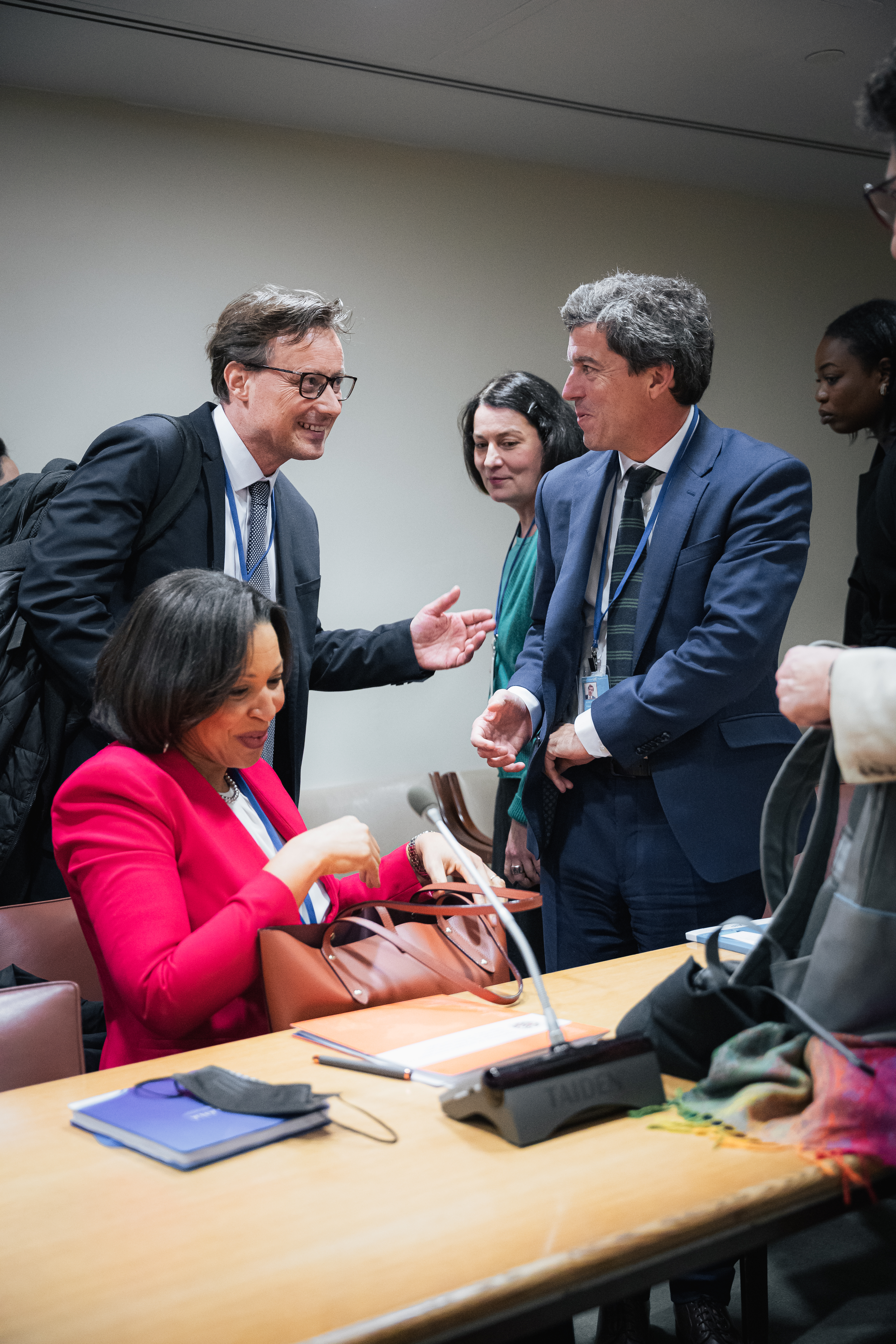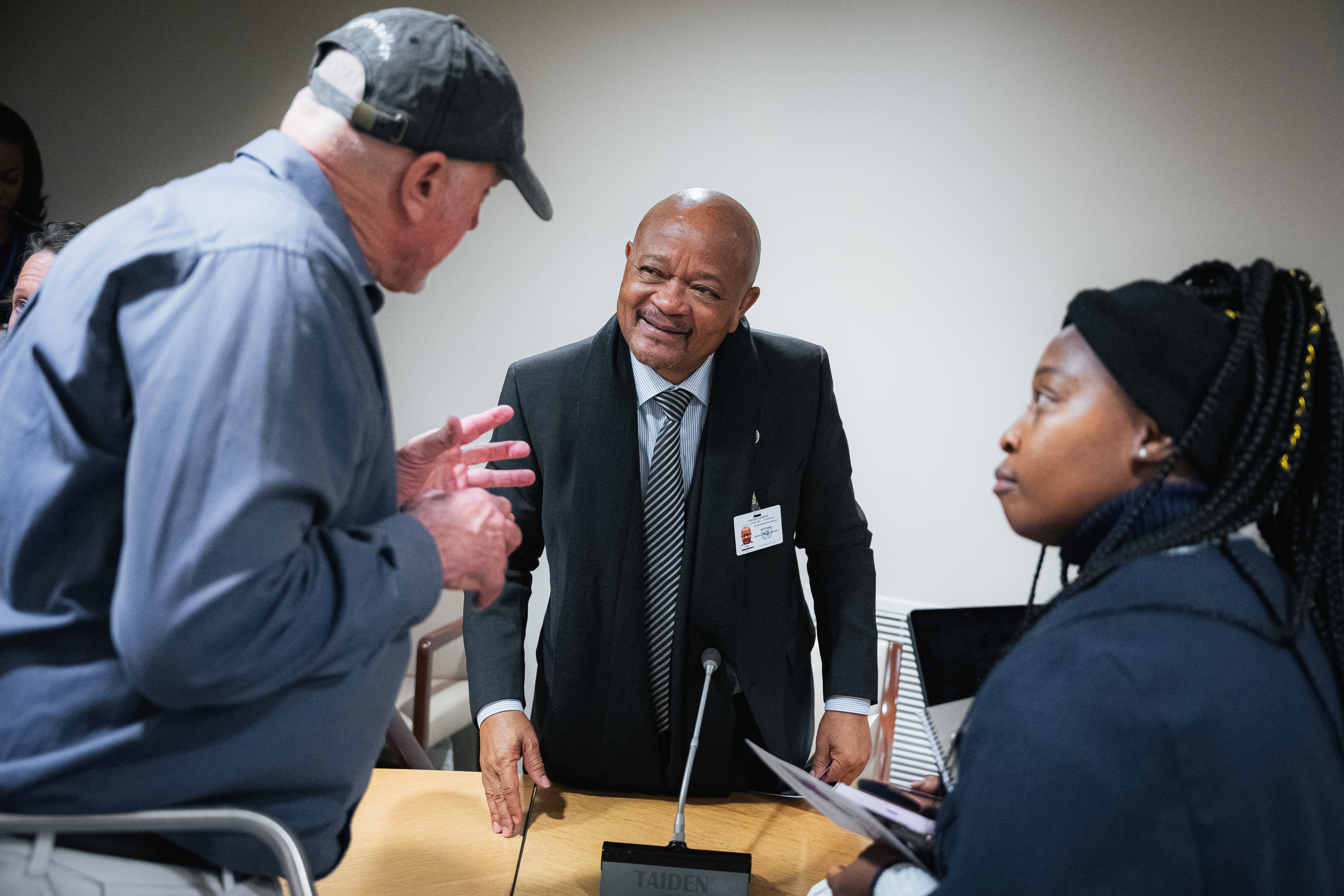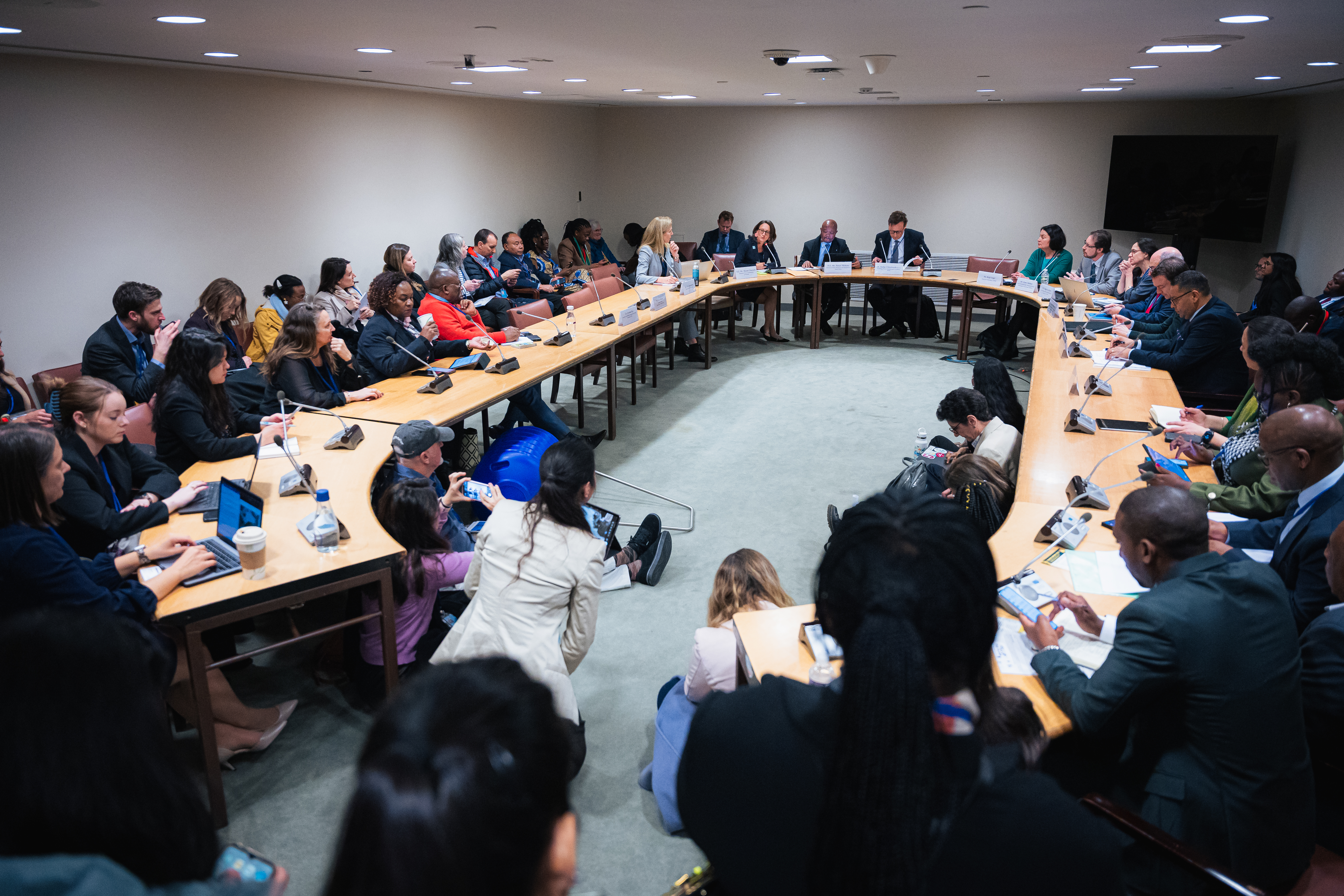In the month since the 2023 UN Water Conference, the onus is now on all of us to honour our commitments and translate the energy into action. The Water and Climate Coalition co-hosted this side-event with HR2W on Multistakeholder commitments to the Water Action Agenda – Integrated Water and Climate Solutions – From Science to Decisions to Actions. Historically held on World Water Day, the 22nd of March in Room A at the UN HeadQuarters, it was designed to create a space to share the tools and skills emanating from the members of the WCC to encourage an interactive dialogue on water and climate. The first half of the event showcased solutions that would bridge the gap between science and action, and the second half invited leaders, lead by the Minister of Water and Sanitation from South Africa, Minister Senzu Mchunu, to share their countries’ commitments in supporting local communities to bridge the gap between water and climate.
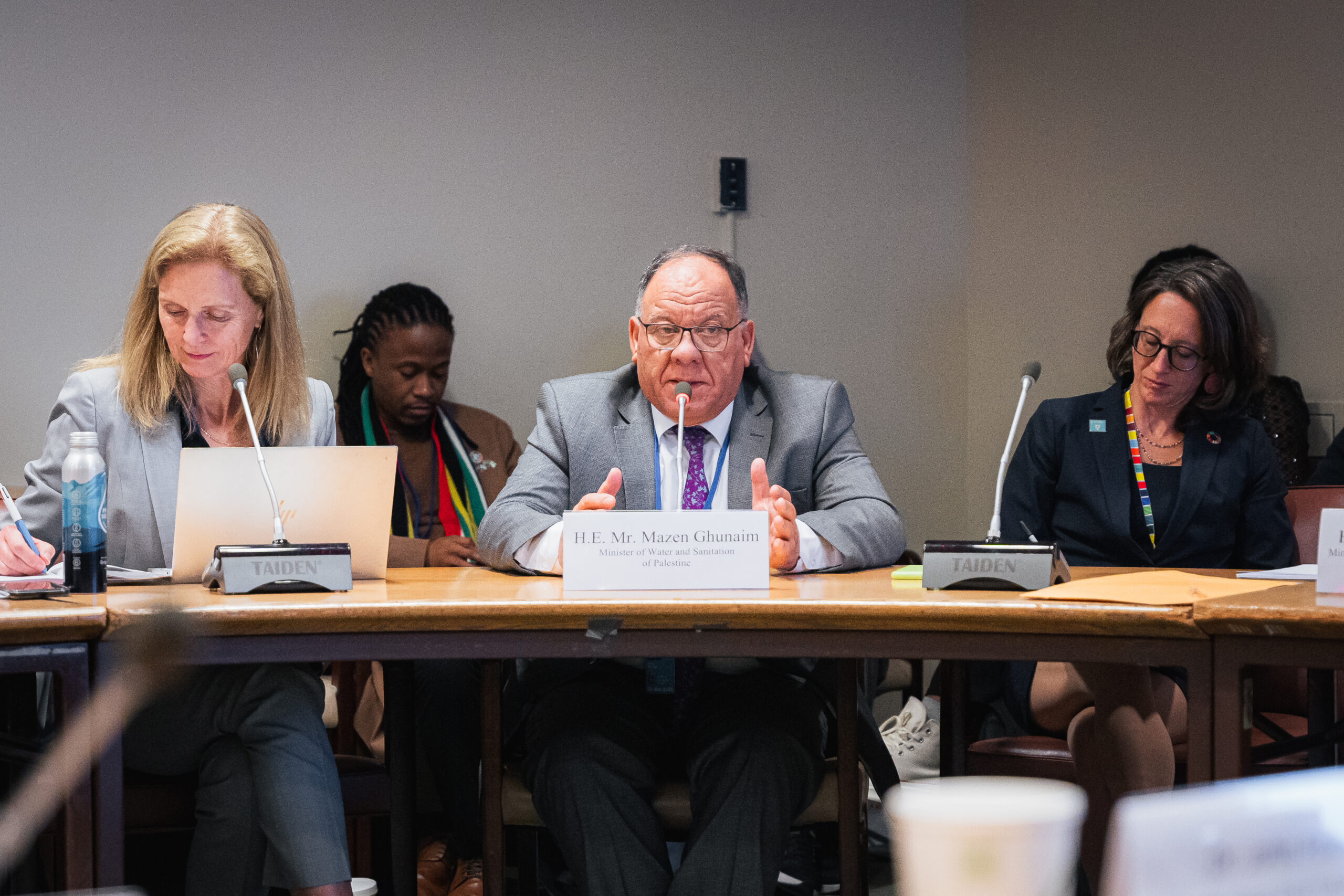
Amanda Loeffen, HR2W (left), and Lis Bernhardt, UNEP (right), (current and previous co-chairs of the WCC, presenting with representative from the Ministry of Water in Palestine, Photos by UN1FY
“Improved water information systems can be the game changer to improved climate resilience, and risk-informed decision-making”.
The first panel focused on Science, moderated by Lis Bernhardt, UNEP. This panel discussion featured Mr. Koen Verbist, a Programme Specialist of the Intergovernmental Hydrological Programme at UNESCO, Dr. John Pomeroy, Director of the Global Water Futures Programme at the University of Saskatchewan, and Ms. Virgine Gillet, the Land and Water officer at FAO. We learn from this discussion that global systems are not readily available to enable timely decision-making at local levels and that the most vulnerable areas to extreme events are those that need better access to data. Improving the data and information systems is imperative to ensure access to good quality and quantity of water as well as the good allocation of the resource across all sectors. Improving the systems and creating accessible and inclusive information can help improve the access to, for example, the existing water resources and to early warning systems.
The second panel focused on finance and enhancing stakeholder partnerships. The experts who participated on this part of the event were Mr. Amgad Elmahdi, from the Green Climate Fund, Mr. Tom Williams, the Senior Director at the World Business Council for Sustainable Development, and Ms. Jyotsna Puri, Associate Vice-President of the Strategy and Knowledge Department at IFAD.
“Countries need to value natural resources through Environmental Economic Accounting to unlock investments, by unlocking finance for nature“
Stakeholders can involve themselves more to help provide solutions and make a case for investments in, for example, infrastructure or technology that can address water resource solutions. Funding can be more readily accessed by showing the benefits of nature-based solutions and the co-benefits of climate mitigation and adaptation.
“The progress on water-related decisions made at global assemblies and conventions needs to be monitored through an integrated, and inclusive governance process”
The second half of the event included a high level discussion of governance and political commitments to the Water Action Agenda, moderated by Amanda Loeffen, Co-Chair of the WCC, and CEO of HR2W. Connected and integrated water-related decisions at global assemblies, conventions and frameworks dedicated to climate, resilience and environment are seen as a way for encouraging this dialogue.
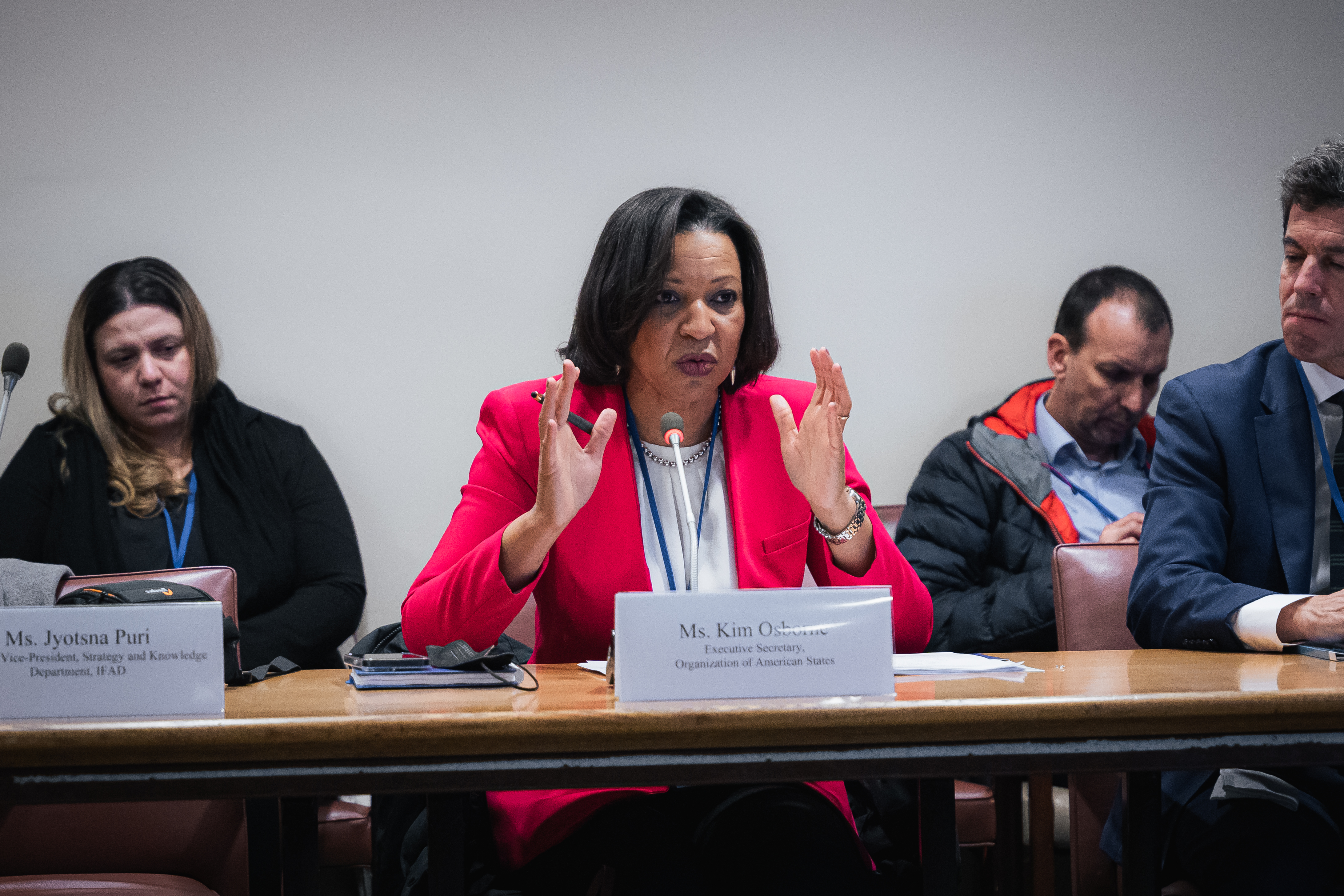
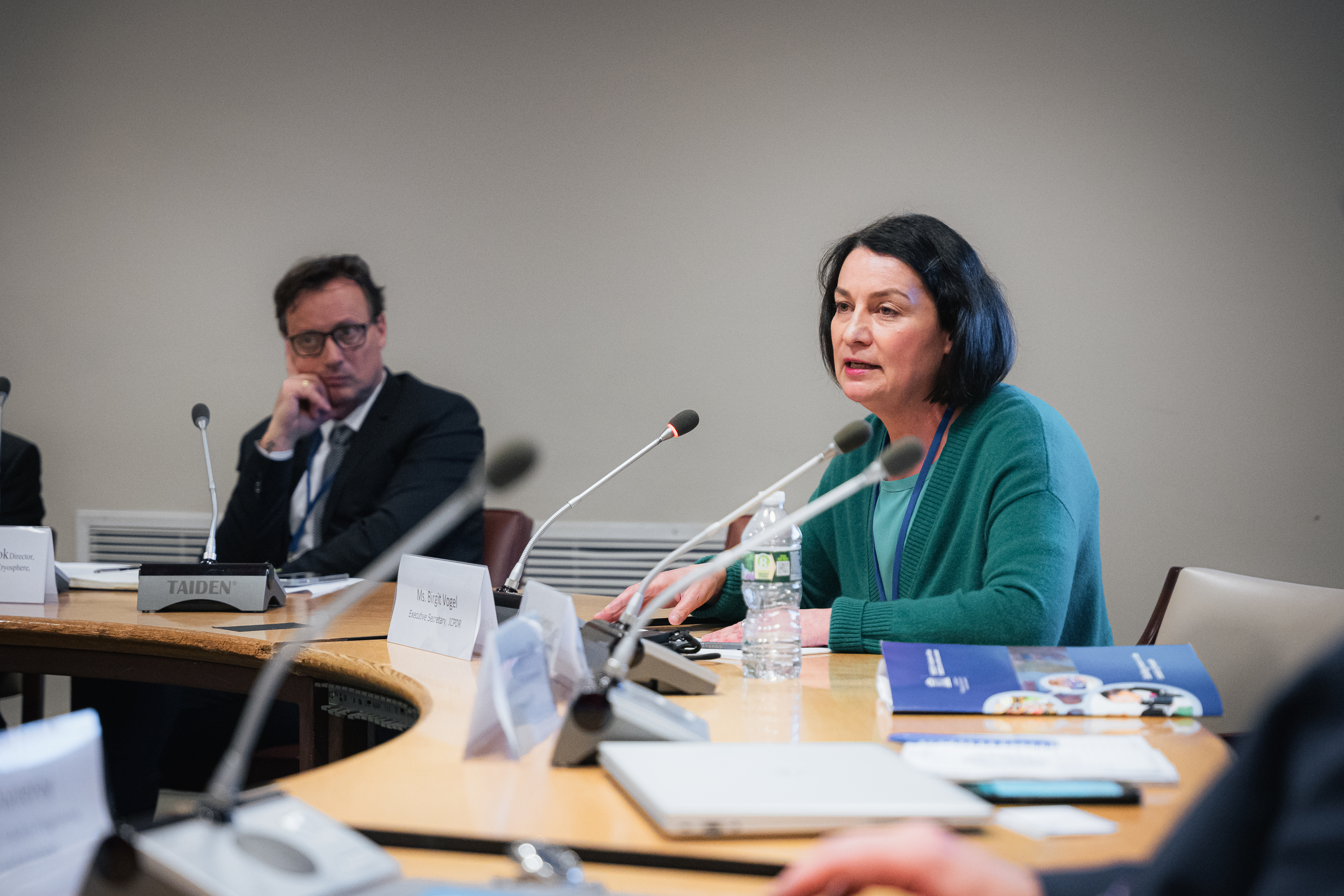
Minister Mr Senzu Mchunu, gave an instructive overview of the South African strategies to water and climate commitments, followed by an interesting point of view from the Ministry of Palestine. This was brought down to stakeholders at the river basin level with presentations from Ms Birgit Vogel, Executive Secretary of ICPDR (International Commission for the Protection of the Danube River), Ms Kim Osbourne, Executive Secretary of the Organization of American States, and finalised with statements from Mr. Pablo Bereciartua, Chair of GWP.
This concluding part of the event opened a space for the stakeholders to reflect and process what they can make individually, or on behalf of their organisations, to help protect the water-resources around the world.

